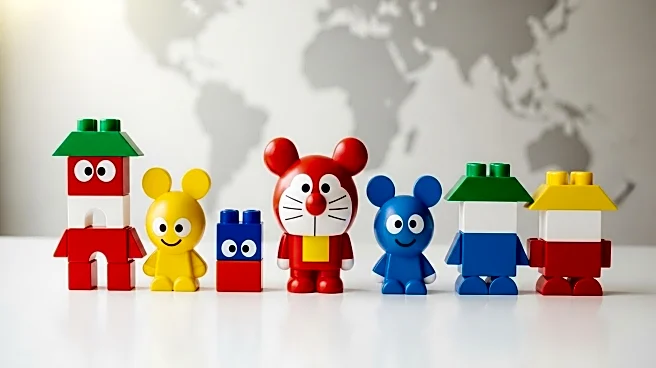What's Happening?
China is facing a surge in counterfeit Labubu toys, known as 'Lafufu,' which are being produced in large quantities and sold domestically and overseas, including in the United States. These knockoffs have gained popularity due to their low cost and quirky features, despite warnings from U.S. authorities about potential choking hazards. Chinese authorities have seized over 1.8 million fake dolls intended for export, citing intellectual property concerns. The rise of Lafufu has sparked debates about innovation and intellectual property protection in China, as well as consumer safety issues in the U.S.
Why It's Important?
The proliferation of counterfeit Labubu toys highlights ongoing challenges in intellectual property enforcement and consumer safety. For U.S. consumers, the availability of these knockoffs poses risks, particularly for children, due to poorly made parts. The situation underscores the need for stringent import controls and consumer awareness. Economically, the counterfeit market affects legitimate businesses and can undermine brand value. The issue also reflects broader concerns about China's role in global trade and the effectiveness of its regulatory measures.
What's Next?
Chinese authorities are expected to continue their crackdown on counterfeit production, with potential implications for international trade relations. U.S. consumers may face increased warnings and import restrictions on these products. The situation could lead to heightened scrutiny of intellectual property practices in China and discussions on improving enforcement mechanisms. Businesses involved in legitimate toy production may seek to strengthen brand protection and consumer education efforts.










